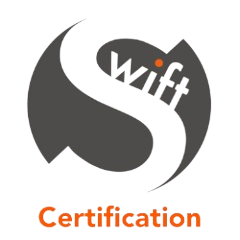Every year, the ISO Survey provides a fascinating snapshot of how organisations around the world are embracing management system standards. The 2024 results, compiled from IAF CertSearch data, are particularly revealing not only because they show global momentum, but also because they highlight where the UK stands in comparison. For SMEs considering or maintaining certification, these insights may be curious.
The Global Picture
Worldwide, ISO certification continues to expand. The most widely adopted standard, ISO 9001 (Quality Management), now accounts for over 1.47 million certificates and more than 2.3 million sites. Environmental management through ISO 14001 has surged to 676,000 certificates, while ISO 45001 (Occupational Health & Safety) has grown even faster, reaching 542,000 certificates – a near doubling compared to 2023.
Information security is also climbing the data ladder: ISO/IEC 27001 now covers almost 97,000 certificates, aptly reflecting the global urgency around cyber resilience.
It’s worth noting that China’s inclusion in the 2024 dataset has significantly boosted the numbers, while Germany’s partial absence means some European figures are understated. Even so, the trend is clear: certification is becoming a mainstream business requirement, not a niche exercise.
The UK in Focus
Turning to the UK, the picture is more nuanced.
- ISO 9001: The UK recorded 32,988 certificates, a slight decline from 2023. However, the number of certified sites remained stable at around 55,500, suggesting that while some certificates lapsed, many organisations are consolidating multi-site coverage.
- ISO 14001: With 16,140 certificates and over 30,500 sites, environmental management remains a strong area for UK businesses. This reflects growing regulatory and customer pressure to demonstrate sustainability credentials.
- ISO 45001: Health and safety certification continues to gain traction, with 10,757 certificates and more than 20,000 sites. For SMEs in construction, logistics, and manufacturing, this is increasingly a prerequisite for tendering.
- ISO/IEC 27001: The UK holds 3,284 certificates across nearly 6,000 sites. While smaller in scale, this standard is growing steadily and enjoys the largest share (3.40%) in global figures vs the other three popular certifications, driven by supply chain requirements and heightened awareness of data security risks.
Sectoral Insights
The sectoral data shows that UK certifications are concentrated in:
- Construction and engineering services – reflecting public sector procurement rules,
- Information technology and professional services – where ISO 27001 and ISO 9001 are often mandatory for contracts,
- Manufacturing and supply chain industries – where ISO 14001 and ISO 45001 are increasingly expected.
For SMEs, this means certification today is not solely about internal improvement: it’s also about staying competitive in supply chains where ISO standards are the entry ticket.
What This Holds for SMEs
For UK SMEs, the message is clear: certification is no longer optional if you want to compete in regulated or supply chain‑driven markets. Customers, regulators, and partners are looking for evidence of quality, sustainability, safety, and data security.
The slight dip in UK ISO 9001 certificates should not be read as waning interest. Instead, it reflects consolidation and the natural churn of certifications. The growth in ISO 14001 and ISO 45001 shows that SMEs are aligning with broader societal priorities: sustainability and worker wellbeing. Meanwhile, ISO 27001 is becoming a differentiator in winning contracts, especially in IT and professional services.
Practical Next Steps
If you’re an SME leader responsible for certification, here are four practical actions:
- Benchmark your sector: Look at which standards are most prevalent in your industry and region. This helps you prioritise which certifications will deliver the greatest return on investment.
- Plan for revisions: ISO 9001, ISO 14001, and ISO 45001 are all undergoing updates; getting certified now positions you well for a smooth transition when the new versions are published.
- Understand accreditation requirements: In the global market, UK public sector and large‑scale supply chain contracts, certification from a UKAS‑accredited body is often mandatory. Buyers want the assurance that comes with accreditation, so if you’re targeting tenders or international trade, this is the route you’ll need to follow.
- Consider unaccredited certification for local SMEs: For many smaller businesses operating nationally or regionally, unaccredited certification can still deliver real value. It demonstrates commitment to quality, safety, or sustainability, and can be more cost‑effective and accessible. While it may not open every door, it can strengthen customer trust, improve processes, and prepare you for accredited certification later if your growth strategy requires it.
At Swift Certification, we specialise in guiding SMEs through this process, making certification achievable, affordable, and aligned with your business goals.
Conclusion
The 2024 ISO Survey confirms that certification is expanding worldwide, with the UK holding steady in key areas. For SMEs, the opportunity is clear: certification is not just about compliance, but about growth, credibility, and resilience. By acting now, you can ensure your business is not left behind as standards become the global language of trust.
Book a free consultation and let’s chart your roadmap to ISO certification:




